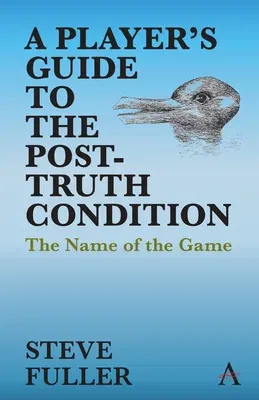A Player's Guide to the Post-Truth Condition: The Name of the Game
presents sixteen short, readable chapters designed to leverage our
post-truth condition's deep historical and philosophical roots into
opportunities for unprecedented innovation and change. Fuller offers a
bracing, proactive and hopeful vision against the tendency to demonize
post-truth as the realm of 'fake news' and 'bullshit'. Where others see
threats to the established order, Fuller sees opportunities to overturn
it. This theme is pursued across many domains, including politics,
religion, the economy, the law, public relations, journalism, the
performing arts and academia, not least academic science. The red thread
running through Fuller's treatment is that these domains are games that
cannot be easily won unless one can determine the terms of engagement,
which is to say, the 'name of the game'. This involves the exercise of
'modal power', which is the capacity to manipulate what people think is
possible. Once the 'necessarily' true appears to be only 'contingently'
so, then the future suddenly becomes a more open space for action. This
was what frightened Plato about the alternative realities persuasively
portrayed by playwrights in ancient Athens. Nevertheless, Fuller
believes that it should be embraced by denizens of today's post-truth
condition.
This book is designed to do what its title says, namely, to provide a
guide to the post-truth condition for those who wish to feel at home and
thrive in it - rather than simply avoid or attack it. It consists of a
series of short chapters that are best read in the order presented but
may also be read in a different order or simply in parts - as most books
are normally read. The book ranges widely across philosophy, theology,
science, politics, economics, psychology and the arts - but hopefully in
a way that allows readers to find their bearings, given the
opportunities presented by the Internet to follow up whatever might
interest them in the text. Underlying this breadth of scope is a
fundamental scepticism with 'business as usual' in the production and
evaluation of knowledge claims. To be sure, the reader will see that
post-truth extends many of the themes already found in what passes for
'postmodernism'. However, at a deeper level, and in light of the ongoing
COVID-19 pandemic, the post-truth condition invites us to discover in a
new key what it has always meant to be 'modern'.

